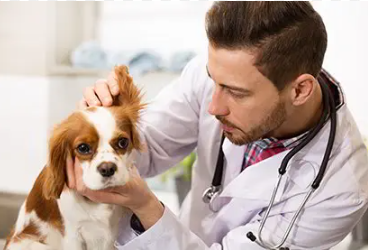
🐾 Pet Treats 101: What’s Safe – and What’s Dangerous for Your Pets
By Dr. Jonathan Miller, DVM, New York
As a veterinarian practicing in the U.S. for over 15 years, I’ve seen firsthand how much pet parents love to spoil their dogs and cats with treats.
And there’s nothing wrong with that—when done thoughtfully, treats can be a great way to bond, reinforce training, and keep your pet happy.
But I’ve also treated far too many animals who became sick—or worse—because of treats that weren’t safe or foods their owners didn’t realize were toxic.
If you love your pet, knowledge is your best friend. Here’s what every responsible pet parent should know:
✅ Why Give Treats?
Healthy treats can help:
-
Reinforce positive behavior.
-
Provide mental stimulation.
-
Support dental health (with appropriate dental chews).
-
Build trust and affection.
But moderation is critical: treats should never make up more than 10% of your pet’s daily caloric intake.
🥗 How to Choose Safe, Healthy Treats
When selecting treats:
-
Read the label carefully. Look for limited, natural ingredients you recognize.
-
Choose treats appropriate for your pet’s size and age.
-
Avoid excessive fat, sugar, or salt.
-
If your pet has food sensitivities or allergies, talk to your veterinarian before trying something new.
-
Always supervise your pet when they’re enjoying a chew or dental treat.
🚫 What You Should Never Feed Your Pet
Some foods we humans love can be extremely dangerous—even deadly—for pets.
Here are the most common hazards I see in practice:
❌ Chocolate – Contains theobromine, toxic to dogs and cats.
❌ Grapes & Raisins – Can cause sudden kidney failure.
❌ Onions, Garlic, Chives – Damage red blood cells and may cause anemia.
❌ Avocado – Contains persin, harmful to many animals.
❌ Xylitol (a sugar substitute) – Causes life-threatening hypoglycemia and liver failure.
❌ Alcohol & Caffeine – Toxic even in small amounts.
❌ Cooked Bones – Splinter easily and can perforate the intestines.
❌ Raw Yeast Dough – Expands in the stomach and releases alcohol.
If you suspect your pet has ingested something dangerous, seek veterinary help immediately.
In the U.S., you should contact your nearest emergency veterinary clinic or consult a certified animal poison control resource for professional guidance.
Prompt action can save your pet’s life, so don’t wait—get expert advice right away.
🐾 Final Thoughts
Treats are a wonderful way to celebrate the bond you share with your animal.
Just remember: quality, moderation, and safety always come first.
If you ever have questions about what’s appropriate for your dog or cat, don’t hesitate to ask your veterinarian—we’re here to help you make the best choices for your furry family members.
Stay safe, stay informed, and give your pets a little extra love (the healthy kind).
— Dr. Jonathan Miller, DVM
